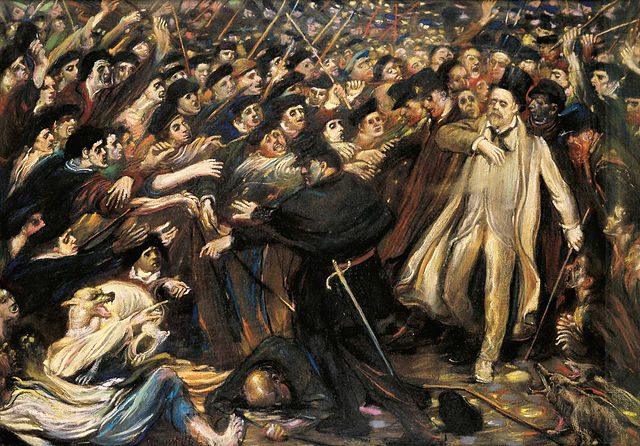
SATURDAY, 19 JANUARY 2019
When people criticise something they know very little about – or something they have never critically considered or investigated, they are like ventriloquist dolls. Their mouths are moving, but they are not really the ones talking. They are simply playing back other people’s opinions that they have “recorded” and that they had considered authoritative at that moment.
TUESDAY, 12 FEBRUARY 2019
A series of statements made by a student in a documentary about Evergreen University comes down to the following:
1. There is a problem in society.
2. We expect people to say the problem is not as serious as we say it is.
3. If you claim the problem is not as serious as we say it is, you are part of the problem.
4. The problem, and all who do not actively oppose it, must be combatted with all necessary might.
Checkmate?
1. You are guilty of Offense X.
2. We expect you to say you’re not guilty.
3. Your efforts to deny your guilt prove that we are right about you.
4. Guilty people must be punished.
WEDNESDAY, 13 FEBRUARY 2019
For a long time I was careful about what I wrote. It was my habit to anticipate how people would respond to something that I had written, to anticipate what counter-argument they would make. I would then usually interrupt myself in the process of writing to pre-empt such an argument.
I would also have applied what can only be described as self-censorship. If I thought of something I wanted to put on paper, I would consider labels that people might attach to me because of the statement or opinion. If I didn’t like the label, or I didn’t think I could launch an effective defence – even if the label would be false, I would rather not write what I had wanted to write, or I wouldn’t publish what I had already written.
However, over the past two years, I have become aware of the fact that people are being destroyed on social media on an almost daily basis for something they said or wrote, sometimes years ago, and which is now in conflict with the accepted doctrines of the day. Even if you didn’t mean something like they claim, or even if you’ve come to different insights, or if you want to argue that that one opinion or statement does not represent you as a person, or that it should be seen as part of a broader discussion or series of statements, you soon realise you’re wasting your time. Defending yourself is futile – the mob has already found you guilty.
This brought me to the conclusion that one should just say what you want to say, and forget what other people might think. If you are publicly chastised, at least you gave your honest opinion. Isn’t that better than living in trembling fear of a mob that is becoming more intolerant as we speak?
______________________